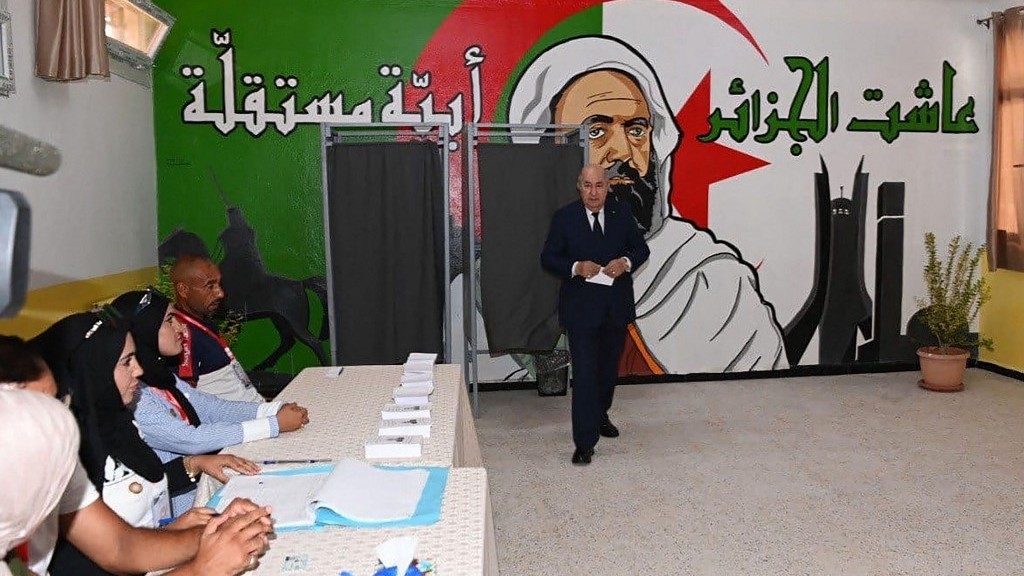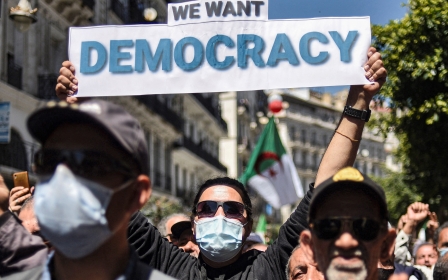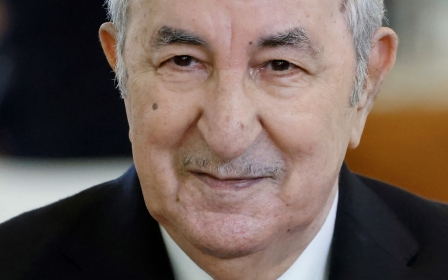Algerian president wins a second term in landslide victory

Algerian authorities declared President Abdulmadjid Tebboune the clear winner of Saturday’s election giving him a second five year term in office.
According to official preliminary results, Tebboune secured 95 percent of the vote, avoiding a runoff. Abdelaali Hassani Cherif received 3 percent, and Youcef Aouchiche garnered 2 percent. Voter turnout was 48 percent.
Supported by the military, Tebboune faced only nominal opposition from Hassani Cherif, a moderate conservative, and Aouchiche, a moderate secularist, both backed by Algeria’s powerful establishment.
Hassani Cherif’s campaign claimed that polling officials were pressured to inflate results and that there were failures to provide vote-sorting records to candidates' representatives, along with instances of proxy group voting.
“This is a farce,” said Hassani Cherif’s spokesperson, Ahmed Sadok, asserting that the candidate had won significantly more votes than announced, citing the campaign’s own tallies from various regions. The claim could not be verified.
New MEE newsletter: Jerusalem Dispatch
Sign up to get the latest insights and analysis on Israel-Palestine, alongside Turkey Unpacked and other MEE newsletters
However, electoral commission head Mohammed Charfi stated during the results announcement that the commission had ensured transparency and fair competition amongst all candidates.
Tebboune's re-election signals that Algeria will likely continue its current governing programme, which has resumed generous social spending fuelled by increased energy revenues after he took office in 2019 during a period of lower oil prices.
He has pledged to raise unemployment benefits, pensions, and public housing programs, all of which he expanded during his first term.
Russia’s 2022 invasion of Ukraine increased European demand for Algerian gas and drove energy prices higher, boosting Algeria’s state revenue after years of depleting foreign exchange reserves and leading to new hydrocarbon projects.
While much of the money has been allocated for social programmes, Tebboune’s government has also implemented economic reforms aimed at strengthening the private sector to create jobs.
However, while unemployment has decreased from its pandemic highs of around 14 percent, it remained above 12 percent last year, and inflation remains high.
The economic challenges faced by everyday Algerians may have contributed to the low turnout on Saturday.
Middle East Eye delivers independent and unrivalled coverage and analysis of the Middle East, North Africa and beyond. To learn more about republishing this content and the associated fees, please fill out this form. More about MEE can be found here.




